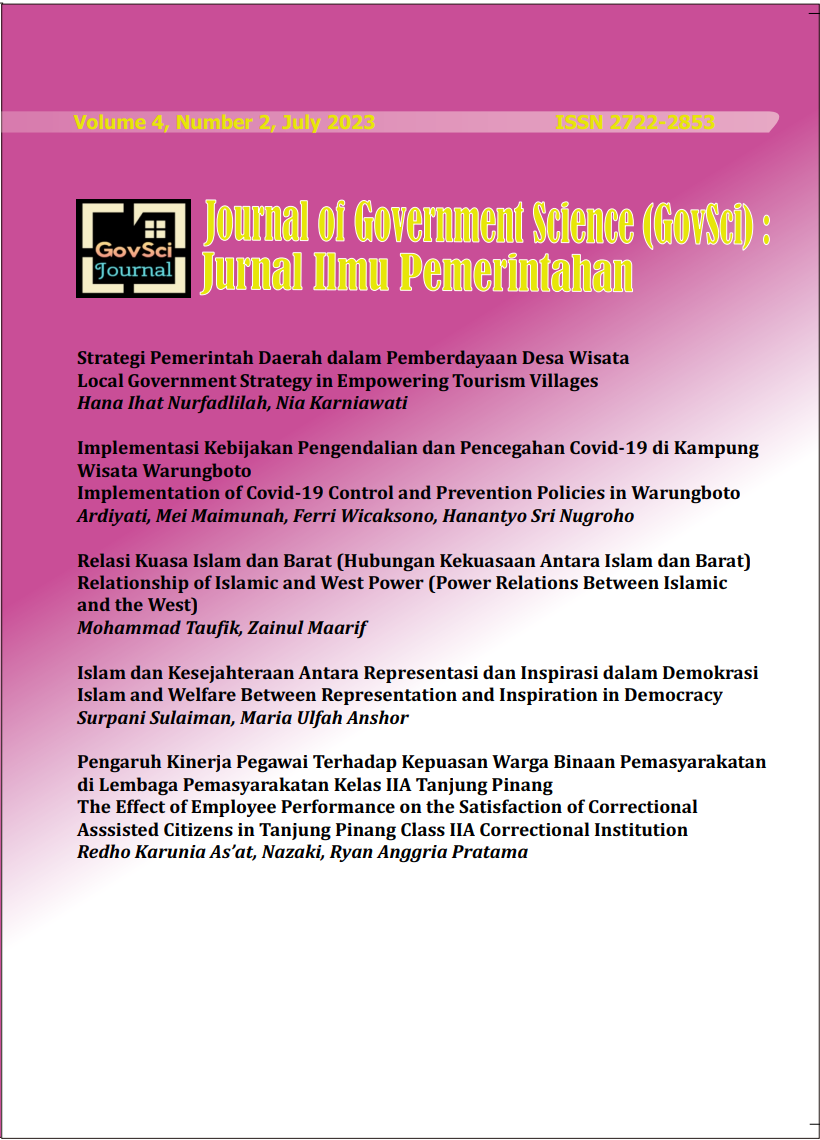Implementasi kebijakan pengendalian dan pencegahan Covid-19 di Kampung Wisata Warungboto Implementation of Covid-19 control and prevention policies in Warungboto Tourism Village
Abstract
This study aims to determine the extent to which Corona virus control policies have been implemented in the tourist village of Warung Boto. This research uses descriptive qualitative method. The theory used is the theory of public policy implementation from George Edward III. The results of the study show that self-assessment control standards and assessment results have not been carried out by the Boto Warung tourism village due to uncertain pandemic conditions and crowd restrictions. Managers feel that their own assessment is more focused on tourist objects, not tourist villages. Many standard facilities and infrastructure are available with assistance from various parties, especially from the Department of Tourism. Standards for the availability of human resources in the control and prevention of Covid-19 are available in collaboration with the urban village covid handling group. Standard SOP procedure documents are available. Funding sources still rely on assistance from stakeholders regarding the control and prevention of Covid-19. Communication between organizations in the tourism village network, the village Covid-19 control and prevention group and the tourism office is very important to reduce limited resources. The legality of the tourism village management organization strongly supports access to funding for various parties. The management status of the Boto shop location is one of the obstacles to the weak control and prevention of Covid-19 in the tourist village of Boto stalls.
Authors

This work is licensed under a Creative Commons Attribution-ShareAlike 4.0 International License.

